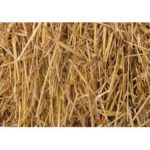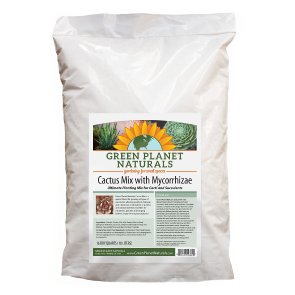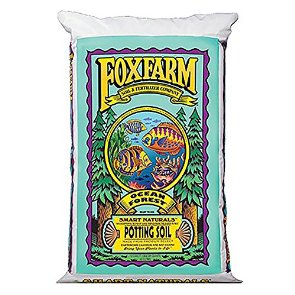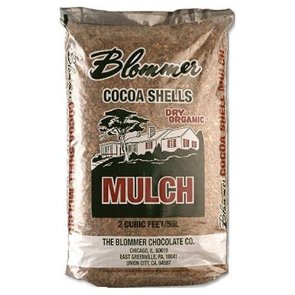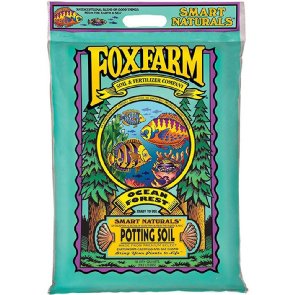You love having fresh, nutritious vegetables, but the thought of having to weed your garden makes you want to throw in the towel. Instead of giving up on your backyard produce, you should find the best mulch for vegetable garden purposes.
Our guide will help you effortlessly weed out the undesirable mulches on the market.
First, compare the top ten mulches for vegetable gardens in our table, then scroll down for useful buying information as well as reviews of our three favorite mulches.
What Types of Mulch Are There?
When you have a vegetable garden, mulch can be your best friend. It serves so many purposes. It cuts back dramatically on the weeds you have to pull, saving you time and back-breaking labor.
Moisture is kept in the soil, especially during the hot summer days where your soil seems to dry out as soon as you water it. It alters the soil temperature, which you can use to your advantage when growing certain types of vegetables. Plus, it makes your garden look appealing, and it can protect your garden from diseases.
When it comes to materials you can use as mulch; the sky is the limit. However, the materials basically fall into two categories: organic or inorganic. The best mulch for vegetable garden purposes depends primarily on which type of mulch you want to use.
Organic Mulch
You can buy organic mulch for your vegetable garden, but you need to be aware that it will keep the soil cooler. Depending upon which part of the country you live in and what you’re trying to grow, this can be a good thing or a bad thing.
Some of the materials used in organic mulches include compost, pine needles, pieces of bark, straw, manure, peat moss, shells from nuts, and even sawdust.
When you’re using organic mulch, you want to make sure you order enough to spread around. What you’ll want is a layer that is somewhere around 2- to 4-inches thick, and you should remember to keep some on hand because organic mulch doesn’t last as long as most kinds of inorganic mulches do.
Inorganic Mulches
Inorganic mulches include items such as plastic, rubber (from old tires), or landscaping fabric. These mulches tend to last a long time.
When you pick out inorganic mulches, you should pay attention to the colors you use if you’ve had trouble growing vegetables in the past or you’re worried you don’t have a green thumb.
For instance, red plastic mulch helps tomatoes and strawberries grow well, while peppers do better with silver mulch.
If you live in a place that has extremely hot weather, you might want to go with a white mulch because it won’t make the soil any hotter, which could affect plant growth. You will, however, have excellent weed control.
3 Mulch options Vegetable Gardens
Thunder Acres 100 Percent Natural Wheat Straw
Kansas wheat straw makes a great all-natural mulch for vegetable gardens, and you can also use it to cultivate mushrooms.
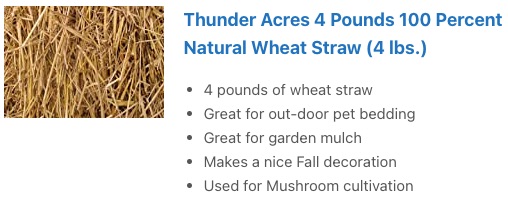
Not only will this best mulch for vegetable garden contender keep the weeds at bay if you put a nice thick layer over your vegetable garden, but you won’t have to worry about any harmful by-products or chemicals leaching into the soil you grow your food in.
As an added perk, this straw can be used for many other things as well, if you have any left after you’re done spreading it in your vegetable garden. It can work as bedding for outdoor animals, and it makes a great decoration when the fall season comes around.
This pack comes in 4 pounds, but it can also be purchased in 8-pound packages and 12-pound packages.
Pine Straw Pine Mulch
This may be a bit on the expensive side, but it covers up to 200 square feet when you spread it at a 2- to 3-inch depth. In order words, you’ll get a lot of pine needles when you order this.
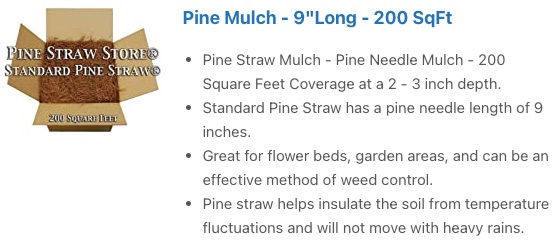
These aren’t tiny pieces of pine either; these pine needles measure about 9 inches long each.
This product is good in vegetable gardens because it helps the soil stay in a temperature range – it protects the soil against wild variations in temperatures. That’s important to protect your investment in the spring after you’ve already planted all your vegetables.
It will arrive dry, not wet, which means you’ll be able to spread the needles around easily without them clumping.
These pine needs won’t blow away during heavy winds or rains. They’ll stay where you put them, protecting against weeds all season long.
Hydrofarm Plant! Organic Coco Coir Planting Chips
These Coco Coir chips will retain moisture, which is good news if you live in dry, arid regions. It will cut down on how often you have to water your plants, and less work in the garden is always a good thing. It will give you more time to find some delicious recipes you can use to spotlight the great produce you’re growing.
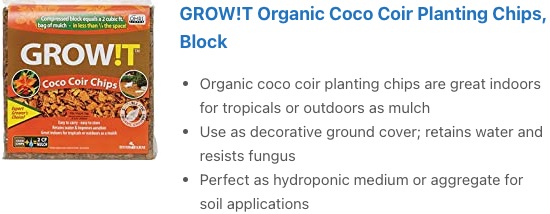
In addition, this mulch will resist fungus, which will keep your vegetables healthy.
Because these chips feel so light, they’re easy to carry without breaking out the wheelbarrow or feeling like you just had a rough day at the gym. The package covers two cubic feet, and it weighs under 10 pounds. Carrying that weight should be doable for most gardeners who grow vegetables.
This mulch comes in a hard block. To put the mulch down without having to break chunks of the block off with a knife, you’ll want to soak the mulch first.

